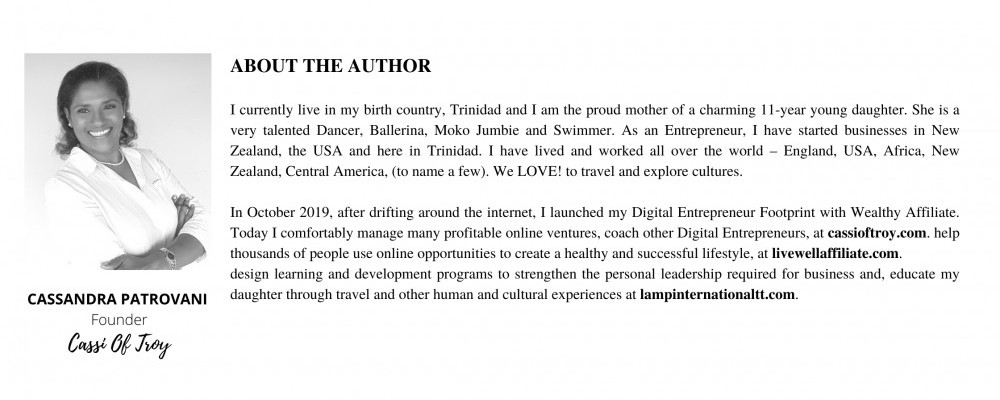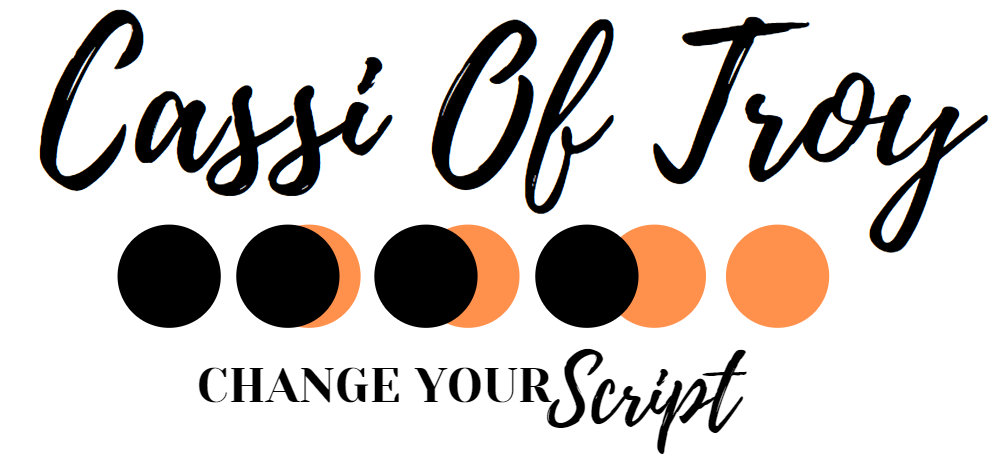How To Convert An Idea Into A Startup
Table of Contents
Knowing how to convert an idea into a startup does not require rocket science. What you do is the easy part and you can find a hundred ways to do it. The part that is most difficult is the how. That requires resilience, grit, determination and a focus tightly cemented in your defined purpose.
Perhaps the cliff that I see most wanna-be entrepreneurs falling over is the lack of courage to push through the tough times. They give up just at the tipping point. With a wee bit more effort and time they would have danced into amazing success.
Different stages of the business cycle require different behaviours. What provides the potting soil for the embryonic stage is your ability to create and test your ideas in spite of the odds.
And remember, the failure rate for startups is around 90%.
But perhaps, these 10 points may test how serious you really are.
1. Change Your Mindset
Would you hire YOU? That’s right. Let me repeat it in case you think I made a mistake.
Would you hire YOU?
From the moment you start to explore business ideas, your journey to becoming an Entrepreneur begins. It becomes imperative to change your mindset and behaviours. There will be no one to manage you or lead you. You are in control of your destiny and where you take yourself is all up to you.
You are now the employer! This business idea is yours and you will be responsible for taking it from a seed to plant or a tree. The size and success will be determined by you.
Your mindset can retard you or propel you. It makes no sense starting to travel down a road that requires positive mental fortitude if you are unsure or lack confidence in yourself.
You are doomed before you start.
2. Strengthen Your Resilience
Now that your mindset is in check, it is time to measure your resilience. When I refer to resilience, I like to ask: How elastic are you?
You are probably wondering what I mean by that. Well, when you pull on a rubber band, 3 things can happen.
- With enough muscle, you can control how it returns to its resting state. (Note that I did not say, how it returns to its original state. That is because it never does.)
- If your hands are weak and it slips away, it either goes flying in another direction or stings you as it returns to its resting state.
- It will burst if you stretch it too hard, too quickly and too wide.
The same things apply to people when faced with adversity and difficulty. Anything that is meaningful and has the potential to be great requires a lot of fortitude, persistence and thick skin.
3. Do Your Market Research
We all have ideas but ideas that can convert into a good, profitable startup is a different matter. Ideas pop into my head every day and I jot down quite a few of them. Only a handful, at best, have ever made it from my little brown book into the research and testing phase.
Market research is necessary to determine what the potential for your idea may be. With brick-and-mortar businesses doing market research can be time-consuming and logistically challenging. Thankfully, we have the internet!

Active internet users are approaching 5 billion with the majority of those, (over 4.3 billion), accessing the internet with their mobile device(s). This allows you the opportunity to conduct research, surveys, questionnaires and testing of your product or service for minimal investment. Social Media channels like Facebook afford you the opportunity to get a lot done for free, if necessary.
4. Define Your Brand
Branding for your startup means getting the trust element right. People buy from people they know and trust. Therefore, your investment into your brand should begin with getting it precisely defined.

Again, with access to the internet and support platforms such as Canva, Designrr and Fiverr, creating your brand and promoting it may be a lot more manageable than you think. Of course, this means investing some time, money and effort into learning and training.
A good starting point with branding is deciding whether you are creating a personal or corporate brand. Also, knowing your niche audience will be important for defining the personality of your brand and how you communicate with your visitors.
Baby Boomers and Millennials have very different needs, wants and expectations, for example.
5. Write Your Business Plan
Now it’s on to writing your Business Plan. This is another weak area for moving from idea to startup. Many people think with just a good hunch they can step out, open their business and people will flock to it. Nothing is further from the truth.
A good Business Plan is always a written document that describes the details of your key business activities, your objectives and how you intend to go about achieving your goals. You must include a comprehensive brief, information about your products and services and what actions you will take to get them to market and sold.
Of course, information about your financing, budgets and strategies to grow your revenue must be analyzed and clearly laid out in your plan. Do make sure that you go into as much detail as you can but do not make your Business Plan unnecessarily bulky.
6. Set Your Budget
There are 4 financial statements that must be included in your Business Plan. These are the:
- income statement,
- cash flow projections,
- your balance sheet and,
- the statement of your shareholders’ equity.
These are required to measure the financial health of your business and will also help future investors make decisions if additional funding is needed.
Your income statement outlines what money is coming in and what you are spending your money on and shows whether you are making a profit or a loss.
The balance sheet shows the value of your business after deducting your liabilities and shareholders’ investments, (equity), from your assets.
As the name says, your cash flow projections show all your expected income and expenses for a period of time, usually 1 year.
Remember, your finances should never be treated as a guessing game. Get help if you do not have the knowledge to complete them yourself.
7. Invest In Your Training & Development
Idea generator and business creator are 2 very different roles. The first one relies on a lot of brainpower with a mix of dreams and creativity. The second demands more structure, grit and know-how. The majority of us also function mostly in roles where we are told what to do and how it has to be done.
Getting you moving across the roles and functioning effectively as a business starter will require new skills. Training and development should become life-long companions. It will be up to you to determine what skills and knowledge you need to acquire to lead yourself to success.
You are now fully in charge of your success and taking your startup into the 10% successful group will demand a lot from you. Of course, if resources are available to you and you can afford to pay for what you need, this will also be helpful.
8. Find Your Tribe
Starting your own business will be one of the loneliest journeys that you will ever take. There will be many days and nights when you have to face difficulties and make tough decisions on your own. You may be lucky to have support from friends and family but, at the end of the day, you are in charge.
One of the best decisions I have ever made was to invest in a community of like-minded people. Every day, I am thankful that I have a tribe that I can share with, laugh with, learn from and most importantly, receive support when I need it. They are business people like me, 2 million strong across the globe.
Of course, your tribe does not have to be that large but you will need strong support.
Keep your friends and family close and find a community that will understand and help you through your business issues.
9. Select A Coach and Mentor
This is an extension of your tribe and an integral part of it. Although I have been a business owner for 25 years, starting businesses in many countries, I still benefit from having a coach or mentor. Sometimes I have both.
A coach is usually someone you engage to help you with your goals and your potential. They stretch you, push you and ensure that you achieve what you have defined for yourself.
On the other hand, a mentor is someone you go to for brainstorming issues, tapping into their skills, knowledge and experience to help you grow and develop.
To simplify things, a coach is task-oriented while a mentor is behaviour and development-oriented. You may need one or the other and at times even both. You should always be aware of what you need and put things in place to ensure that you get it.
10. Its Survival Depends On You
I have left the best for last. This may well be the number 1 reason that holds you back from turning your idea into a startup. I call it comfort. It stems from the reason that we are trained to be followers and employees rather than leaders and employers.
Remember the mindset? A fundamental shift in your thinking is required to start and build a business. You cannot take the attitude of being a worker who receives a paycheck no matter what into your business. You will fail before you start.
You will be the “everything” employee in your startup. Whatever needs to get done is your responsibility. If you cannot afford to pay for it to get done then you will have to do it yourself. Many people forget this. It is your business and no one will have the drive and passion for it that you do.
In the early days, it is all about survival and you have to work in and on your business believing that its survival depends on you.
Some Closing Thoughts . . .
I truly enjoy converting an idea into a startup. My first attempt was in my teens with a mobile sandwich bar I started on construction sites. It paid my way through high school and took the financial burden off of my parents.
Years later, I made 2 attempts at different consulting startups, one of which I sold and the other I still own today, 20 years later. It has been the breeding ground for many other ideas and led me to start my own internet business in 2019.
With all of that experience and success, it is a joy to coach and mentor other upcoming business owners and help them bring their ideas to fruition. The greater joy though is in watching my clients transform themselves, their lifestyles and their behaviours as they move along the achievement continuum and experience on their terms.

